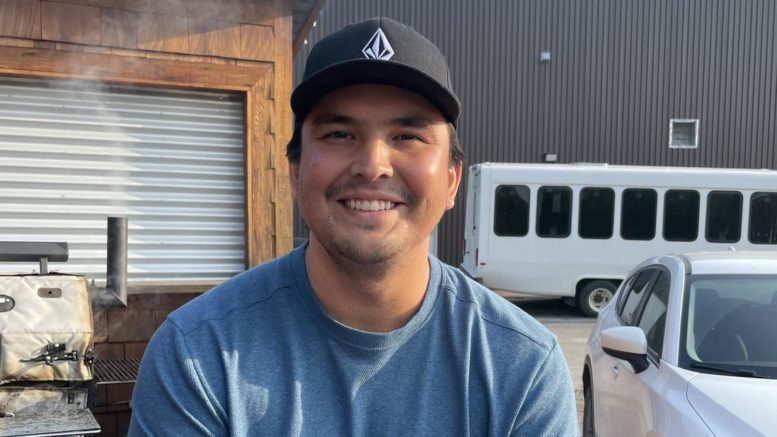Canada’s Arctic is warming fast, and youth, on the shoulders of Elders, are ready to talk about it.
“Elders I spoke to in the past had told me that things are changing. And it’s not the same weather, the same season that they’re used to. Things are coming early,” says Lauren Lafferty, a 25-year-old youth from Fort Simpson.
Lafferty is one of 11 delegates leading the first-ever territorial Climate Youth Advisory group and she’ll be representing the entire Dehcho region.
“We should be kind and mindful and start going outside more often; spending more time with the plants, with other people,” she adds.
Lafferty is committed to advocating for the preservation of traditional plants, like wildflowers, and the medicine that it yields.
With a generation so connected online, she says it’s “tricky” to get youth involved in traditional settings or to even share their thoughts and opinions.
“It’s like putting yourself right in the middle,” she says. “You have to be mindful of our Elders and the way that you are trying to do things.”
Andrew Speakman, 27, is the only representative for the Sahtu region, and he’s prepared to shake things up and challenge the bureaucratic systems at play.
“I’m excited to bring a new perspective and way of doing things into this process,” he says, “I want to talk to people directly and get the ball moving and make sure people are held accountable.”
Speakman is originally from Déline and although he was raised in Yellowknife he’s honored to represent his home community.
“All I care about is the people, plants, and animals of the N.W.T.,” he says, “So I saw this as an opportunity to directly have a positive impact on those things.”
Speakman argues new perspectives will help guide the conversation, although he anticipates some challenges along the way.
“I definitely don’t want to be expected to incorporate all traditional knowledge or way of life, I mean, we’re living in a new age,” he says. “The solutions that we’re going to have need to be looked at from so many different angles.”
Speakman ultimately wants to ensure that youths’ voices and their unique perspectives are at the forefront of these conversations.
Members will be responsible for providing ongoing advice and recommendations to the council whilst facilitating a relationship with their region. In return, members will learn about policymaking.
“I feel that a lot of decision-makers avoid confrontation or contentious issues just because they’re uncomfortable, but it’s absolutely necessary (to challenge them),” he says.
Mobilizing youth, increasing community engagement, and influencing policy-making are on the top of Speakman’s list as he prepares for the first in-person meeting in Yellowknife this week.
Jessi Pascal, Grace Illasiak, Mary Ann Minoza-Sylvester, Julia Gyapay, Reegan Jungkind, Tanisha Beaverho, Jody Ann Zoe, James Thomas, and Ellen Gillies will also be joining the conversation.
Tim Heron is the Co-Chair of the NWT Climate Change Council, he says, “The youth voice will be important to amplify in the next action plan and help shape future Climate initiatives and policies. I am thankful to have been a part of the selection committee reviewing the excellent applicants.”
The climate youth council will serve for two years.
What’s in a name?
The rising climate in the North is undeniable but the terms used to describe the severity of the situation were up for debate last week.
Frame Lake MLA Kevin O’Reilly raised the issue with Minister of Infrastructure Diane Archie in the Legislative Assembly on Thursday.
The establishment policy of the newly-formed Department of Environment and Climate Change does not refer to manmade climate change as either an “emergency” or a “crisis.”
O’Reilly called out Archie for avoiding the terms when referring to manmade climate change in the assembly.
She said that in using these terms, “we could be dismissed or polarized by individuals who are holding very different views.”
With files from Ian Down





